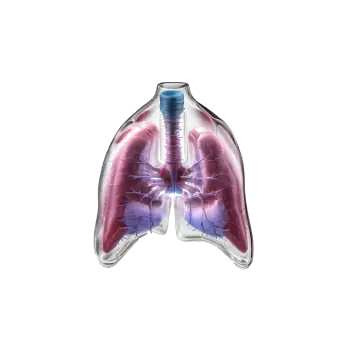Quick version
If your period suddenly stops and you exercise a lot, are stressed or eat too little, it could be hypothalamic amenorrhea – a condition where the brain's hormone control is affected by lifestyle. The body perceives that there are not enough resources to maintain a normal menstrual cycle and therefore temporarily shuts it down.
Common causes:- Energy deficit (e.g. in case of eating disorders or too strict a diet)
- Hard or frequent exercise
- Mental or physical stress
Symptoms:
- Menstruation disappears
- Fatigue
- Reduced sex drive
- Mood swings
Reduce exercise, increase energy intake, prioritize rest and stress reduction. In most cases, menstruation returns when the body regains balance.
What is hypothalamic amenorrhea?
Hypothalamic amenorrhea is a type of secondary amenorrhea that occurs when the hypothalamus, an area of the brain that controls the body's hormones, reduces its signaling. This leads to a lack of ovulation and therefore also a lack of menstruation.
The condition Hypothalamic amenorrhea is common among young women, elite athletes and people who live with high demands or under high stress. But it can affect anyone – even without extreme lifestyle changes.
Common causes of hypothalamic amenorrhea:
There are several causes of hypothalamic amenorrhea:
- Severe weight loss
- Lack of energy – this can be seen, for example, in eating disorders or too strict a diet
- Excessive exercise – often with intensive exercise several days a week
- Chronic stress – both physical and mental stress
- Lack of sleep and lack of recovery
Symptoms of hypothalamic amenorrhea
In addition to the complete absence of menstruation, you may also notice symptoms such as:
- Fatigue and low energy
- Reduced sex drive
- Dry mucous membranes
- Mood swings or depression
- Feeling that the body is not functioning as usual
The disappearance of menstruation is the body's way of telling you that the balance is disturbed, so it is important to listen to what the body is saying and review your lifestyle to investigate what could possibly be the cause.
5 things you can do if you have hypothalamic amenorrhea
If you have suffered from hypothalamic amenorrhea, it is often possible to restore your period with lifestyle changes. Here are five steps that can help:
- Eat more energy than you burn
- Reduce exercise, especially high-intensity and long-term exercise
- Rest and recover properly
- Prioritize sleep and stress management
- Seek help from a doctor, gynecologist or dietitian if your period does not return
If the condition continues for a very long time without treatment, it can affect hormonal balance, fertility and bone density.
Can you get tested?
Yes, you can examine the levels of important hormones that affect the menstrual cycle – for example, FSH, LH, estrogen, prolactin and thyroid hormones. Read more about the analysis and order hormonell balans plus.

























